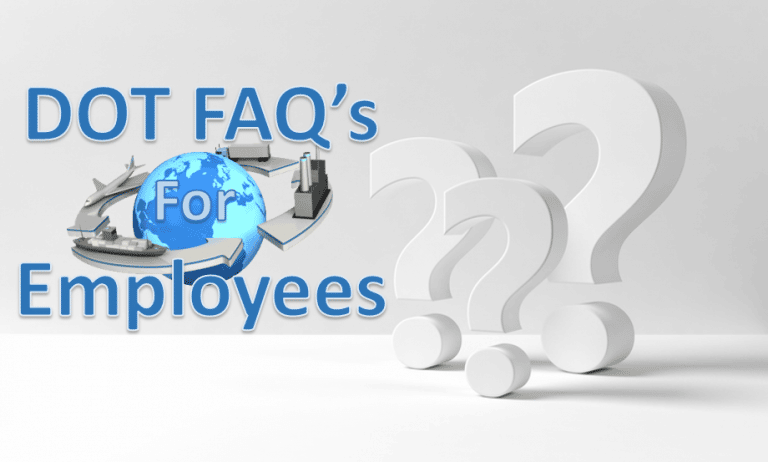When there’s a problem that threatens people’s lives, solutions need to be developed rapidly. That is exactly what happened when the government started to realize that more and more accidents were being caused by impaired commercial drivers. Their solution was drug testing.
The testing program started on November 21, 1988. It was the result of the Chase, MD train accident in which 16 people were killed. The train engineer admitted to smoking marijuana and did not see the red light indicating the next section of the track was not clear. The Secretary, on his authority, mandated the testing program for all the transportation modes. This was done within 6 months. Part 40 was published as an Interim Final Rule open for comment. It was published as a Final Rule December 1, 1989. Alcohol testing and split specimen were not part of that Final Rule.
In the Summer of 1991, a New York City Subway operator crashed and killed 5 people. He was determined to be intoxicated. The OTETA Bill was introduced into Congress and was passed with President Bush signing that piece of legislation into Public Law on September 29, 1991. OTETA added alcohol testing and split specimen testing, and it was the impetus for the SAP program. This only affected the following agencies: FAA, FRA, FHWA (FMCSA) and FTA. Coast Guard and Research Special Programs Administration now PHMSA were not required to abide by this law as they were not named in the OTETA Public Law. If you have any questions about the DOT drug testing process, search our blog or contact us!
Why Am I Being Tested?
In the late 1980’s, several significant transportation accidents forced Congress to pass the Omnibus Transportation Employee Testing Act of 1991. This act required that all Department of Transportation agencies drug test their safety-sensitive employees. This includes bus drivers, truck drivers, pilots, boat captains and more. The goal of the act was to make the roads safer for all passengers and the data shows it has been effective.
Should I Ever Refuse a Test?
It wouldn’t be smart to refuse a test on the spot because a ‘refusal to test’ is viewed the same way as a failure. What you should do is take the test, and dispute the results later if you felt you were unfairly tested. If an employee feels that they the were unfairly treated at the collection site, that should be taken up and discussed with the Designated Employer Representative (DER).
What Happens If I Test Positive?
The MRO is required to contact the tested individual to discuss the non-negative test result with the individual. The MRO can verify the test as negative if there is medical evidence for the positive test result. The use of marijuana for medicinal purposes will still result in the test being positive for marijuana. The split specimen option is for the specimen to be tested at the same lab or another SAMHSA accredited laboratory.
Will My Testing Records Follow Me To My Next Job?
Your test records will follow you to another DOT regulated employer. The goal is the program is to have a safe transportation system for the protection of the public and the environment.That doesn’t mean you can’t get another DOT regulated position as long as you have completed the return-to-duty process required by the DOT.
At National Drug Screening, we provide third party services to help your business pass the next DOT audit. We’ll cross the T’s and dot the I’s to make sure you receive a passing score. If you’re an employee or employer and have any further questions, please contact National Drug Screening today.
To order a test or schedule consultation, call 866-843-4545 or click around on our website!







